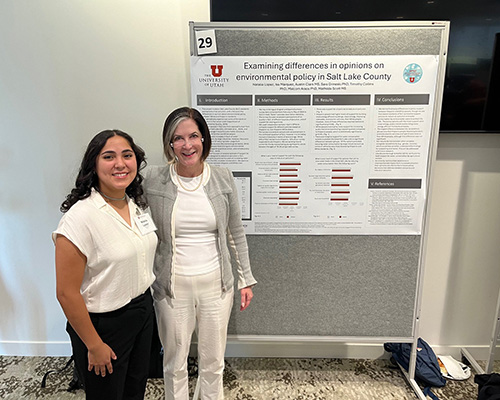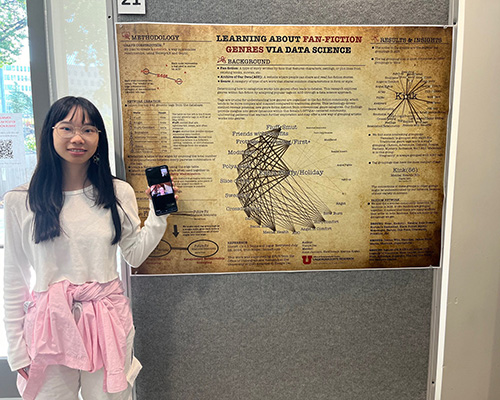College of Humanities 2024 Summer Program Highlights
Humanities students had a busy summer, including presenting research, learning abroad and completing internships - here’s a glimpse into the incredible work they’ve been doing.
Undergraduate Research Opportunity Program (UROP)
UROP provides a stipend and educational programming for students to carry out a research project of their own under the supervision of a faculty mentor. Each UROP awardee receives a stipend for 120 research hours during the semester.
UROP Recipients Summer 2024:
Lucas Gunyan - The Role of Women in the Greco-Roman Worship of the Mysteries of Isis and Osiris
Mentor: Margaret Toscano, Associate Professor, Department of World Languages and Cultures
Caroline Jarvis - Mbëkë Mi Translation Proposal
Mentor: Therese De Raedt, Professor, Department of World Languages and Cultures
Polly Redd - The Utah AIDS Foundation Food Bank: AIDS and LDS Identity-based Charity in Utah
Mentor: Elizabeth Clement, Associate Professor, Department of History
Shreya Reddy - Colonial India in the Late 19th and Early 20th Century: Recording Newsworthy Moments
Under the British Raj
Mentor: Ben Cohen, Professor, Department of History
Summer Program for Undergraduate Research (SPUR)
The Office of Undergraduate Research hosts the Undergraduate Research Symposia (URS) each semester providing opportunities for students from across the university to present their work in a scholarly setting to students, faculty, and other members of the U community. In the summer semester this is a chance for SPUR participants to showcase their research projects. SPUR mentors are Faculty here at the University of Utah, but the student scholars come from universities all over the country. Congratulations to the 2024 Humanities SPUR Scholars!
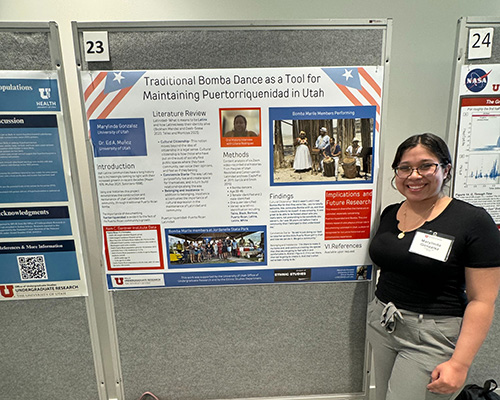 Marylinda Gonzalez
Marylinda Gonzalez
Marylinda Gonzalez, University of Utah
Traditional Bomba Dance as a Tool for Maintaining Puertorriquenidad in Utah
Research Mentor: Ed Munoz, Associate Professor, School for Social and Cultural Transformation
Marylinda, a double major in English and Ethnic Studies (Latinx studies emphasis) and a minor in Chicano studies, is a Humanities Ambassador for the 2024-2025 academic year. Marylinda Gonzalez was awarded both the Dr. Clarence Snow Memorial Endowed Scholarship in the Department of English and the Ophelia Flores Laurella Pathfinder Endowed Scholarship in the College of Humanities.
Project Description: This project asserts that Latinidad, or Latinx identity, is not new to Utah. Throughout the years, varied Utah Latinx groups have developed different mechanisms for maintaining their Latinidad. In this project, we analyze four oral histories from members of the Utah Puerto Rican dance group Bomba Marilé. In particular, we demonstrate how concepts such as cultural citizenship, convivencia diária, or daily living, and insistence and belonging shape Puertorriquenidad, or Puerto Rican Latinidad. The findings highlight intra- and inter-ethnic interactions that help develop a sense of belonging in Utah, a place not known as welcoming towards non-LDS communities in general, and non-white LDS communities in particular. Implications of the study are discussed in the context of the increased growth and diversity of Utah's Latinx ethnic groups.
Natalia Lopez and Dean Hollis Robbins
Natalia Lopez, University of Utah
Examining Differences in Opinions on Environmental Policy in Salt Lake County
Research mentor: Sara Grineski, Professor, Department of Sociology and Co-Director, Center for Natural and Technological
Hazards
Natalia Lopez is an office assistant in the College of Humanities and serves as president of the Spanish Club in the Department of World Languages and Cultures.
Project Description: This project is about Salt Lake County residents' perceptions of air pollution, with a focus on the differences in opinion about environmental policy between White and Hispanic residents. Salt Lake County periodically experiences some of the worst air pollution in the nation. Air pollution in the region frequently exceeds the PM2.5 24-hour national ambient air quality standard, which is concerning as it can harm human health. (PM2.5 Moderate Area State Implementation Plans (SIPs) (2009-2014), 2019). In Salt Lake County, previous research has shown that people of color are more exposed to dust from the Great Salt Lake (Grineski et al., 2024), as well as fine particulate matter during winter inversions (Mullen et al., 2020) and annual average fine particulate matter (Collins & Grineski, 2019) than are White people.
Asuna Dai and Anne Jamison via zoom
Asuna Dai, Davidson College
Learning about Fan-Fiction via Data Science
Research Mentor: Anne Jamison, Professor, Department of English
“Asuna came with knowledge of both computing and fanfiction, including lived knowledge of her own fandoms. Her Chinese linguistic and cultural knowledge enabled us to better investigate across languages. According to team member Kate Isaacs, Associate Director, Scientific Computing and Imagining Institute (SCI), Asuna “absorbed new methods like a sponge and got so much analysis done! Her work this summer extends the way we can look at fanfiction and provides a valuable basis for what we need to collect in the future---and how much we can do computationally without automatically mass-reading the stories, something the community is very sensitive to right now.” – Anne Jamison
Project Description: Fanfiction refers to written works created and shared by fans of an already existing work, such as a movie, television show, or book series. These existing works give their fans a common point of interest which can springboard into explorations of any genre or topic. Thus, fanfiction communities provide a forum for collective storytelling where often marginalized individuals can engage in cultural commentary, experiment with narrative forms, express and process emotions, and explore aspects of identity or belief - both through generating and interacting with fanworks.
Oxford Consortium on Human Rights
The Oxford Consortium for Human Rights conducts workshop seminars for students and faculty in collaboration with the Oxford Institute for Ethics, Law and Armed Conflict (ELAC). This summer, two Humanities honor students, Adam Cook (World Languages & Cultures, International Studies) and Ashlyn Tolman (Peace and Conflict Studies), attended the Consortium’s second annual workshop. Participants examined the positive and negative implications of technological advancements on human rights, from enabling access to healthcare to restricting privacy. The workshop equipped participants with the knowledge and skills to advocate for human rights in the digital age.
“I enjoyed presenting about the potential future impacts of artificial intelligence on the labor force with our group at the end of the week; we heard many top professors and professionals that work with technology and AI, so I tried to wrap my mind around concepts like AI in nuclear warfare and deep brain stimulation to cure Parkinsons.” - Adam Cook
Learn more about Adam’s time at Oxford.
Learning Abroad
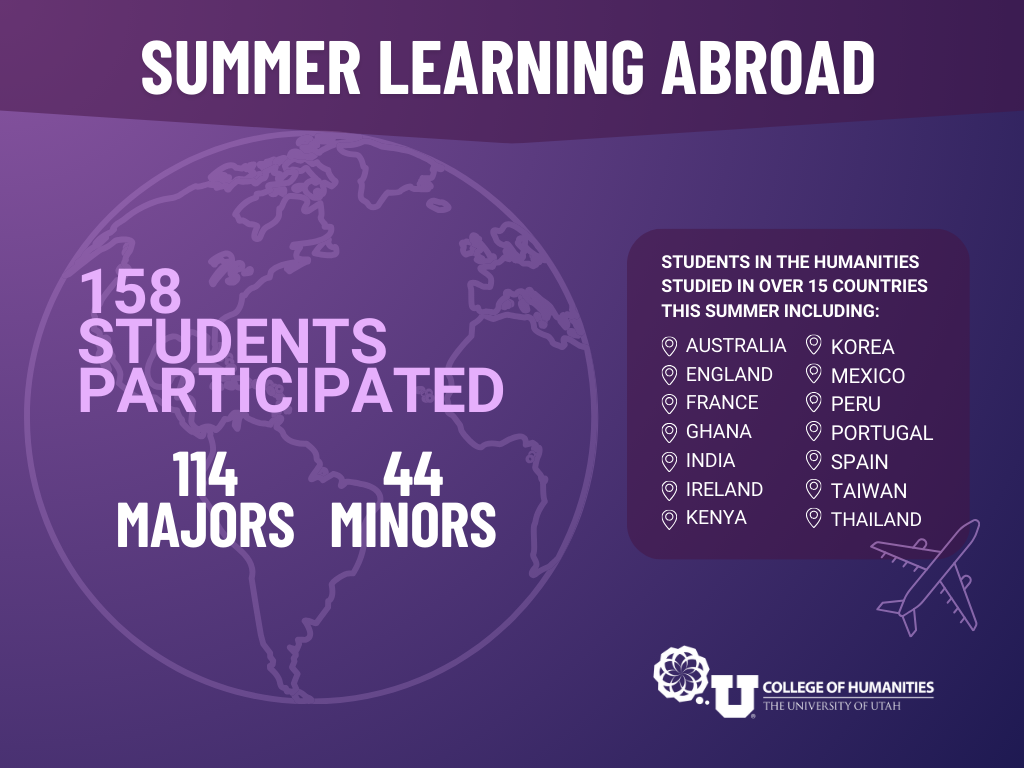
This summer, 114 Humanities majors and 44 minors participated in Learning Abroad programs, studying in over 15 countries.
This year's London Seminar in Literature and Culture Learning Abroad course, “Street Scenes: Imagining Cosmopolitan London,” was led by Professors Stacey Margolis, Matthew Potolsky, and Jane England.
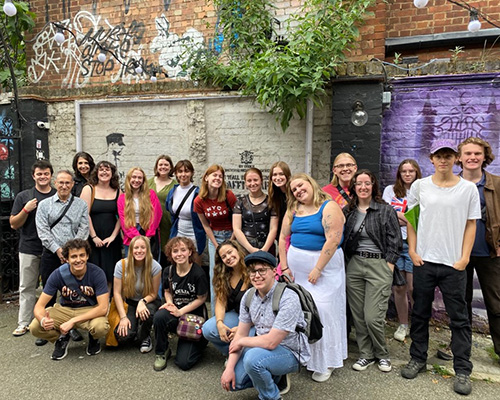
Reflecting on the program, they shared:
“We were lucky to have an extraordinary group of students—bright, enthusiastic, and curious. More than anything else, we wanted them to experience the city we were reading about, to immerse themselves in the art and culture of London.”
Internships
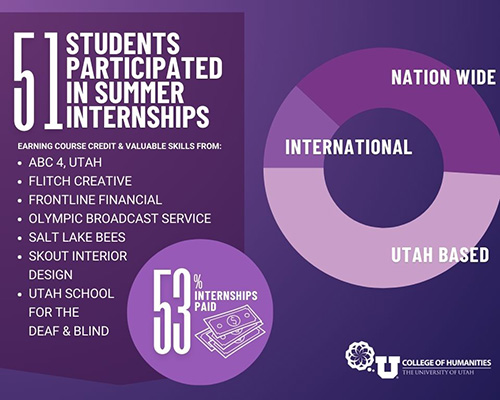 During the summer semester, 51 Humanities students completed internships for course
credit at a variety of organizations, including: ABC 4, Olympic Broadcast Service,
the Utah School for the Deaf and Blind, the Salt Lake Bees, and Skout Interior Design.
During the summer semester, 51 Humanities students completed internships for course
credit at a variety of organizations, including: ABC 4, Olympic Broadcast Service,
the Utah School for the Deaf and Blind, the Salt Lake Bees, and Skout Interior Design.
Humanities Internship Spotlights:

Katie Turner, Internship with Utah School for the Deaf and Blind
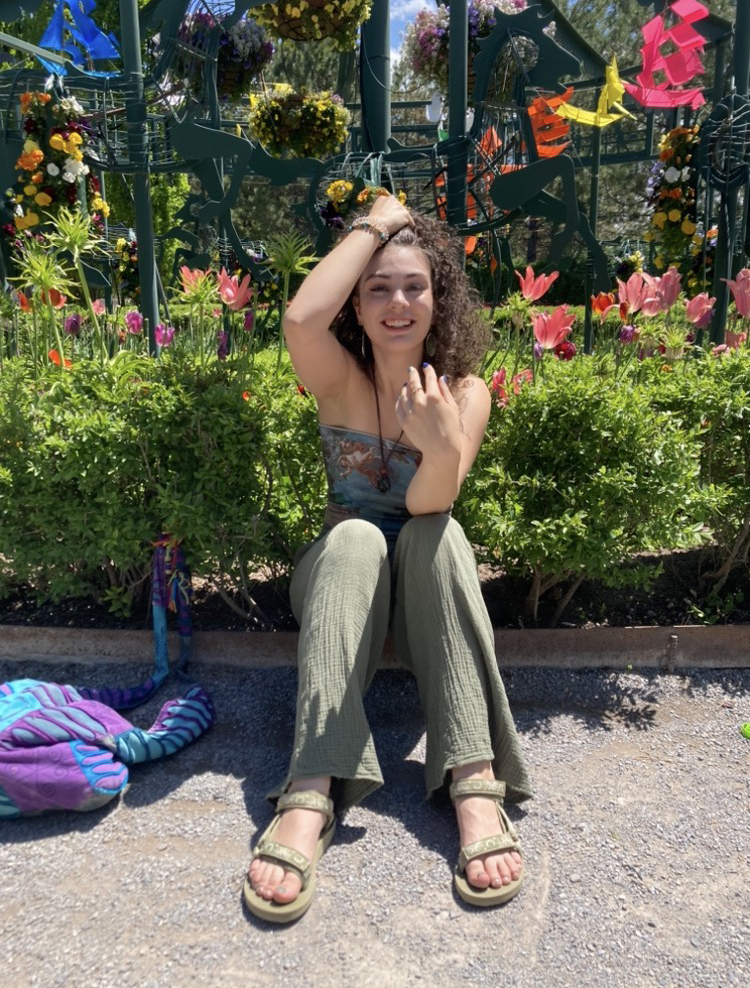
Tara Thompson,Internship with Insight
Learn more about internship opportunities.

